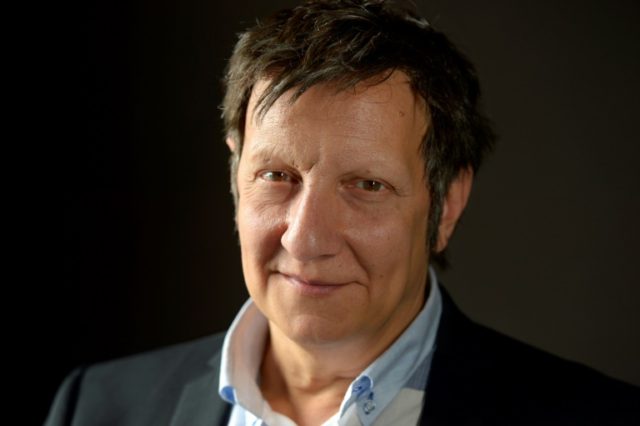Paris (AFP) – A new play by two of the world’s top theatre directors about the “cultural genocide” of Canada’s indigenous peoples has infuriated some of the country’s own First Nations “consultants” who say they were not listened to by its creators.
“Kanata”, produced by Quebec’s Robert Lepage and France’s Ariane Mnouchkine, which opens this weekend in Paris, tells how children were forcibly taken from their parents and sent to residential schools notorious for their abuse and neglect.
More than 3,000 children died in or trying to escape from them, a Canadian government report later admitted.
Students’ names were taken away and they were addressed by a number in many of the schools, the last of which closed in 1998.
But the play’s attempt to bring their suffering to the stage — and to touch on the murder and disappearance of up to 4,000 First Nations women since the 1980s — has hit a raw nerve, with Lepage and Mnouchkine accused of cultural appropriation, shoddy research and deafness to indigenous concerns.
Three First Nations artists and activists that the producers consulted about the play told AFP that they were not listened to.
Others who later met Lepage accused him of “whitewashing” and falling for stereotypes from Western films with costumes that look like they were “bought at a Halloween store”.
Cowboy Smithx, a filmmaker from the indigenous Blackfoot nation, said he did not “appreciate being name-dropped” to defend the play when “I gave him tons of advice and he obviously took none of it.”
But their major gripe is that Lepage and Mnouchkine are telling their story with their voice — and without a single indigenous actor, writer or meaningful cultural advisor.
The row comes after the Montreal International Jazz Festival pulled Lepage’s last show, “Slav”, after only two performances in July over his use of a mostly white cast to play black slaves.
– Insult to injury –
Margo Kane, a leading figure in the indigenous arts scene, said “Kanata” — which has been renamed “Kanata, Episode 1, the Controversy” — risked adding insult to injury, she warned.
“The anger is coming from people robbed of their identity. We have been denied so much and now to be denied any hearing on this is depressing,” she told AFP.
“What is shocking is that someone from Quebec which has fought for its own cultural survival and sovereignty cannot see other voices should be heard too and not always be mediated through some white guy.
“This was a man who was a visionary… It is bizarre and weird. How dare he now turn around and deny a proper hearing to the voices he is purporting to speak for,” she said.
“His ego as the ‘Great Artist’ has deafened and blinded him to what he is doing,” Kane said.
Lepage, a hero in his native Quebec and the maker of some of Cirque du Soleil’s biggest hits, had already admitted that he “misjudged” the way he developed the show, telling Radio Canada that “I’ve lost lots of friends in all this”.
But he and Mnouchkine have dug in, insisting on the universalist right of artists to tell a story as they wish.
“You don’t have to be Danish to play Hamlet,” said Mnouchkine.
And Lepage said he is “the opposite of offended” when he sees a straight man playing a gay man like him.
Both declined repeated interview requests from AFP, saying they needed to concentrate on the production.
However, many in the Quebec political establishment have jumped to their defence with then Parti Quebecois leader Jean-Francois Lis saying artistic freedom was compromised when Lepage was forced to cancel the Canadian run of the show in July when US backers withdrew funding.
– ‘Appropriation is normal’ –
Mnouchkine said she saw no problem in her famously multiracial Theatre du Soleil troupe taking on the fraught history between white and indigenous Canadians, despite none coming from North America.
And she warned that it set a dangerous precedent to limit who actors can play by race.
“If we start saying ‘We Jews’ or ‘We blacks’ because of our legitimate bitterness about the past, we will only reproduce the same crazy irreparable suffering,” Mnouchkine told the Montreal daily Le Devoir.
People have always “appropriated what they liked from neighbouring tribes, sometimes before or after having invaded or massacred them.”
Nakuset, a Cree who runs a refuge for indigenous women in Montreal, said she got hate mail from Lepage’s supporters after signing a protest letter about the show after seeing publicity shots resembling “the Hollywood version of Indians in buckskin and teepees”.
“We told him that we didn’t want the play cancelled… if he would listen to us it could only make it better.”
But Lepage was dismissive, she told AFP.
She said “Kanata” was his “own interpretation and whitewashing of native realities… it is not us. It is like the Westerns. We are in 2018 and you are doing the same thing.”

COMMENTS
Please let us know if you're having issues with commenting.